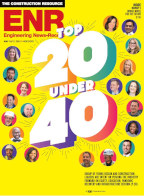With Democratic majorities now in the House and Senate, organized labor is gearing up to push for legislation that would make it easier for workers to form unions.
 O'Sullivan |
Passage of the Employee Free Choice Act is the “No. 1 priority of the American labor movement,” says Stewart Acuff, the AFL-CIO’s national organizing director. But industry groups are expected to oppose the measure, contending that the bill could undermine the rights of workers to decide whether or not to belong to a union.
The congressional labor committee chairmen, Sen. Edward Kennedy (D-Mass.) and Rep. George Miller (D-Calif.), have said introducing the bill is a top priority for 2007. Similar legislation they proposed in the last Congress garnered 216 cosponsors in the House and 44 in the Senate but was not voted on.
Observers on both sides of the issue think prospects are good for passage in the House this year. Speaker Nancy Pelosi (D-Calif.) has said she plans to bring the bill up for a vote by spring.
But even the bill’s union supporters doubt that the measure will win the 60 votes needed to break an expected filibuster in the Senate. Even if the bill were to pass, President Bush probably would veto it, says the laborers’ union general president, Terence M. O’Sullivan. “It certainly will be debated but, ultimately, because it won’t pass in the Senate or it would be vetoed by the President, we do not believe it will become law,” he says.
The bill would let workers decide whether to take part in a secret-ballot election or simply use a card-check system to show support for unionizing. It also would impose stricter penalties on employers that illegally intimidate or fire workers for union activity and require both sides to reach a contract through arbitration if they cannot agree on terms within 90 days.
“It will allow workers to indicate their support for a union without having to go through these really [difficult] campaigns, which is where employers fire people and retaliate…and do all the things that they do to workers to try to intimidate them,” says AFL-CIO’s Acuff.
But industry groups believe the bill could leave employees vulnerable to intimidation by union organizers and would undercut what they view as a democratic process. “We believe the right to vote by secret ballot, free of coercion, intimidation or inappropriate influences on both sides...is fundamental to the American democratic electoral process,” says Danielle Ringwood, senior director of legislative affairs for the Associated Builders and Contractors. She notes that the National Labor Relations Act already has “strict fines and penalties on the employer side should the employer illegally fire a worker.”
Brian Worth, the Independent Electrical Contractors’ vice president for government affairs, says that letting employees use a card-check system “certainly opens [the employees] up to some pressures that we don’t think they should be under.” IEC also opposes the binding arbitration provision. Worth says, “I think this is as anti-business and anti-free enterprise as you can get.”


Post a comment to this article
Report Abusive Comment